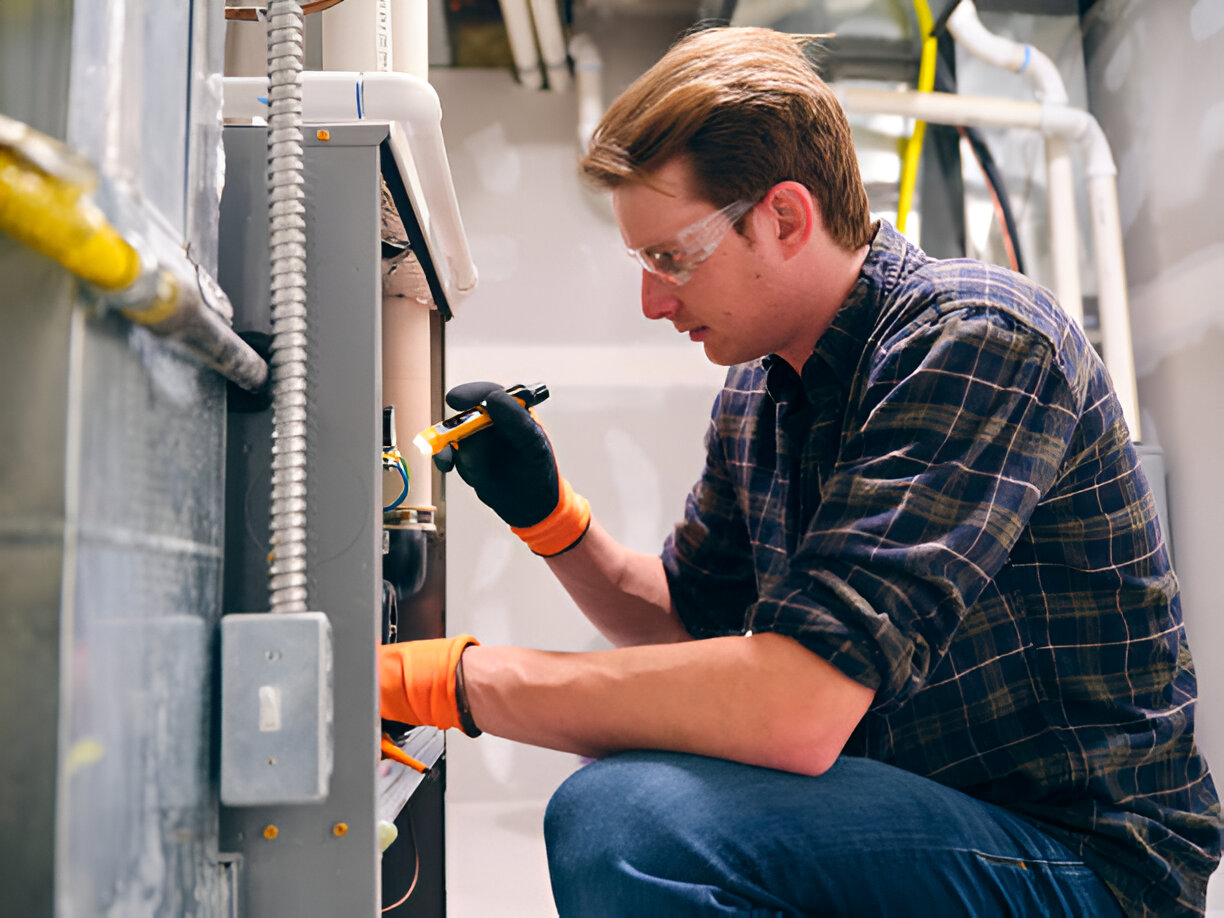Heating


Why heating matters in Plant City homes
- Short, cool winters still create comfort needs for bedrooms and bathrooms during early mornings and evenings.
- High humidity and frequent pollen can stress HVAC components and indoor air systems, making regular maintenance more important.
- Many Plant City homes use heat pumps or electric systems rather than natural gas furnaces. Knowing the local climate and typical home construction helps determine the best heating approach.
Common heating systems we service in Plant City
- Heat pumps (air-source and ducted mini-splits) — efficient for mild Florida winters and the most common choice here.
- Central forced-air systems — include gas or electric furnaces paired with central ducts and air handlers.
- Electric furnaces and resistance heaters — used in some properties or as supplemental heat.
- Ductless heating systems — ideal for room-specific heating, additions, and homes without existing ductwork.
Common heating issues in Plant City and how to spot them
Recognizing problems early avoids emergency replacements.
- Weak or uneven airflow — often caused by clogged filters, duct leaks, or failing blowers.
- Short cycling — system turns on and off frequently; symptoms include inconsistent temperatures and higher energy use.
- Poor heat output — may indicate refrigerant issues in heat pumps, failing elements in electric systems, or dirty coils.
- Strange noises — banging, grinding, or rattling point to mechanical wear or debris.
- Odors or visible soot — can be a sign of combustion problems in gas equipment and require immediate inspection.
- Rising energy bills in cooler months — could indicate loss of efficiency from aging equipment or lack of maintenance.
Diagnostic process and what a professional visit includes
A clear, methodical inspection helps you make informed decisions.
- Visual inspection of the outdoor unit, furnace, and ductwork for corrosion, leaks, or damage.
- System startup and operational checks — thermostat behavior, blower operation, and heat production.
- Safety checks — combustion analysis for gas equipment, carbon monoxide testing, and venting verification.
- Performance measurements — temperature rise across the system, refrigerant pressures for heat pumps, and electrical load checks.
- Written findings and options — repair recommendations, estimated lifespan, and replacement scenarios.
Installation and replacement options for aging equipment
When repairs are frequent or efficiency drops, replacement can be the smarter choice.
- Replace with a high-efficiency heat pump if you want lower running costs during Plant City winters and summers. Look for higher HSPF and SEER ratings for better efficiency.
- Consider electric furnace replacement only if ductwork and electrical capacity suit it; typically best for homes that cannot use heat pumps.
- Ductless mini-splits are a great option for additions, garages, or rooms with no ducts — they offer zoned comfort and lower installation disruption.
- Evaluate system sizing carefully. Oversized units short cycle and underperform. A load calculation based on your home, insulation, windows, and orientation ensures correct sizing.
Efficiency, operating cost, and long-term value
- Heat pumps generally cost less to operate than electric resistance heating in Florida climates because they transfer heat instead of creating it.
- Efficiency ratings matter: higher SEER and HSPF mean lower energy bills but higher upfront cost. Compare lifecycle costs, not just purchase price.
- Proper insulation, smart thermostats, and zoned controls reduce run time and extend equipment life.
- Replacing aging, inefficient equipment can reduce monthly energy bills and improve consistent comfort throughout the home.
Repairs, maintenance, and seasonal tune-ups
Regular maintenance is the most cost-effective way to extend system life and maintain efficiency.
- Recommended tasks for tune-ups:
- Replace or clean air filters
- Inspect and tighten electrical connections
- Lubricate moving parts
- Check refrigerant levels (for heat pumps)
- Clean coils and condensate drains
- Verify thermostat calibration and sequence of operation
- Best timing for Plant City: fall tune-up focused on heating readiness ahead of colder nights, and a spring check for cooling season preparation.
- Preventive maintenance reduces emergency calls, improves indoor air quality, and helps detect small issues before they become major failures.
Safety checks, warranties, and financing
- Safety is a priority: gas systems require combustion and venting inspections every year to prevent carbon monoxide risks. Electrical connections and safety controls are checked on electric systems.
- Manufacturer warranties often cover major components for a fixed period; labor warranties may be provided separately. Keep documentation for any installed equipment and note warranty registration requirements.
- Financing and payment options are commonly available for replacements and major upgrades. When evaluating offers, compare terms, interest, and total cost over the life of the equipment.
Service plans and what to look for
A structured service plan offers predictable maintenance and priority service during peak times.
- Typical plan features:
- Scheduled seasonal inspections and tune-ups
- Priority scheduling for repairs
- Discounted diagnostic fees or parts
- Records of service history to support warranty claims
- For Plant City homeowners, a biannual check timed for fall and spring aligns well with seasonal HVAC needs.
Making the right decision for your home
Choosing the right heating solution in Plant City comes down to matching equipment to your home, budget, and long-term goals.
- If comfort and lower energy bills are priorities, a high-efficiency heat pump or a properly sized central system is usually the best fit for local climate conditions.
- If your system is more than 10 to 15 years old and showing efficiency loss or frequent repairs, replacement is often more economical than continuing repairs.
- Regular maintenance, safety checks, and a clear understanding of warranty coverage protect your investment and reduce surprises.
Heating systems are a critical part of home comfort even in mild Florida winters. By focusing on proper diagnostics, informed replacement choices, seasonal maintenance, and safety checks, you protect comfort, indoor air quality, and long-term value for your Plant City home.
Service Areas


